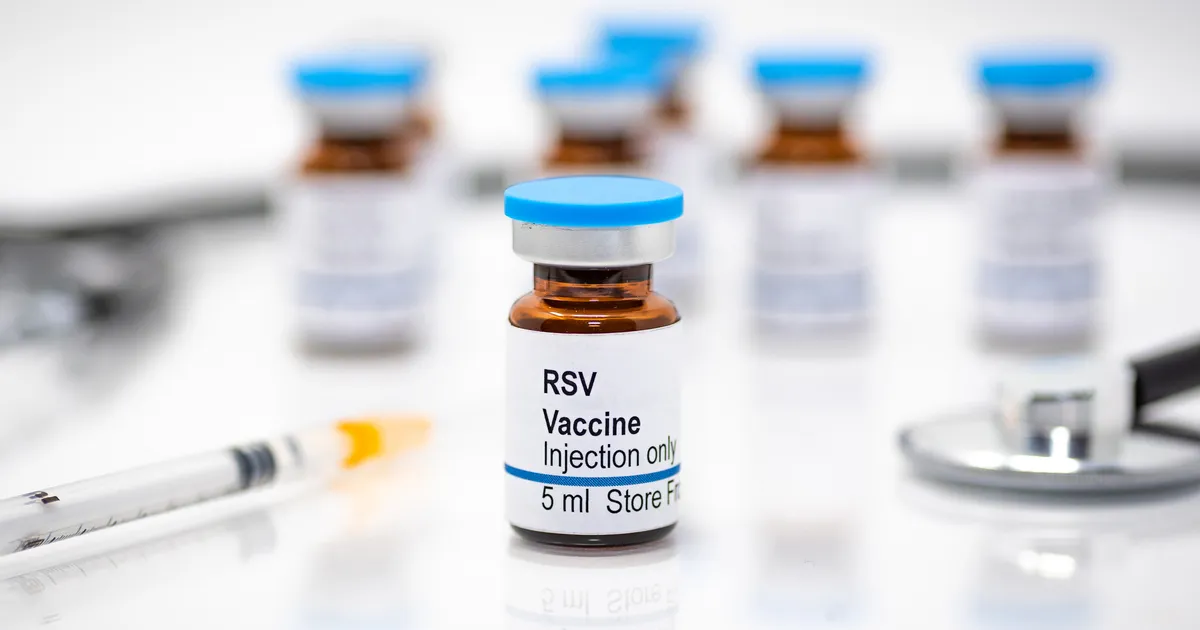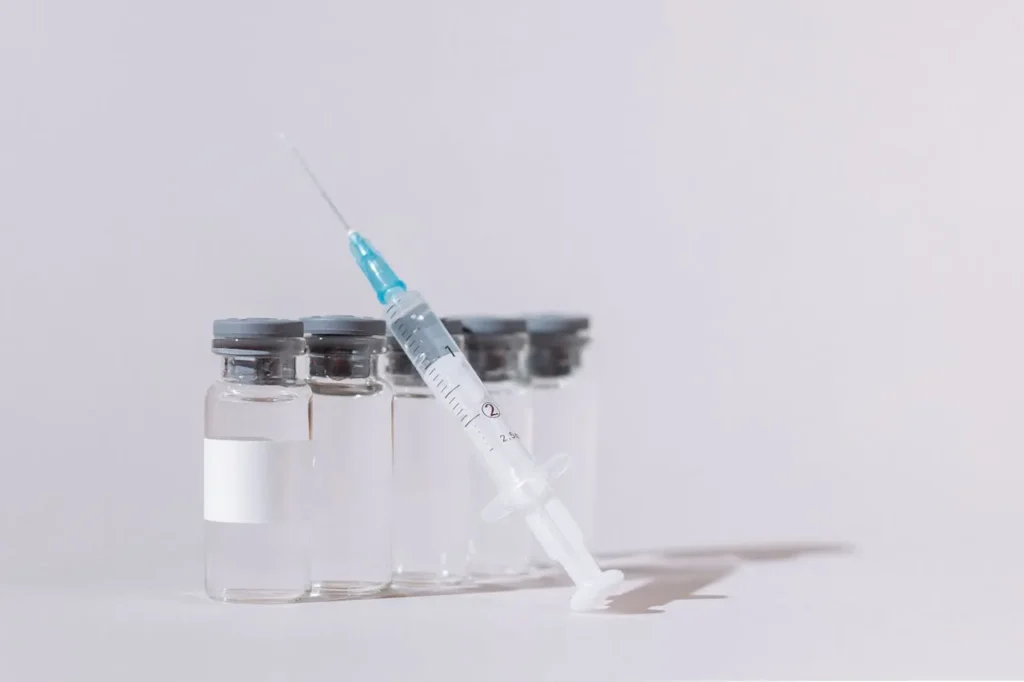
ACIP Backs Pfizer’s RSV Vaccine ABRYSVO for At-Risk Adults Aged 50–59
Pfizer Inc. (NYSE: PFE) has taken a significant step forward in the effort to combat respiratory syncytial virus (RSV) infections among U.S. adults, as the U.S. Centers for Disease Control and Prevention’s (CDC) Advisory Committee on Immunization Practices (ACIP) voted to broaden its recommendation for RSV vaccination. This expanded guidance now includes the use of approved RSV vaccines—among them Pfizer’s ABRYSVO® (Respiratory Syncytial Virus Vaccine)—for adults aged 50 to 59 who are at increased risk of RSV-associated lower respiratory tract disease (LRTD).
This development marks a pivotal evolution in the national RSV prevention strategy, bringing a potentially life-saving vaccine to a wider demographic of vulnerable adults. The ACIP’s decision reflects a growing recognition of the burden RSV places on adults under 60, particularly those with underlying medical conditions that predispose them to severe respiratory illness.
A Significant Expansion of the Recommendation
Previously, RSV vaccination recommendations primarily targeted adults aged 60 and older. However, in light of emerging data and clinical experience, the ACIP has voted to extend these recommendations to adults between 50 and 59 years old—specifically those with conditions that significantly increase the risk of RSV-related complications.
According to data from the CDC, between 15,000 and 20,000 hospitalizations associated with RSV occur annually in U.S. adults aged 50 to 59. While RSV is often considered a virus that primarily affects infants and the elderly, these statistics underscore the threat it poses to middle-aged adults with chronic or immunocompromising health conditions.
The expanded recommendation includes Pfizer’s ABRYSVO, which received FDA approval in October 2024 for use in adults aged 18 to 59 who are at increased risk of RSV-associated LRTD. This regulatory milestone made ABRYSVO the first RSV vaccine approved for such a broad adult population—encompassing those under 60 with heightened risk profiles.
Now, with the ACIP’s endorsement, ABRYSVO is poised to reach more people who need protection most, pending final approval from the CDC director and the Department of Health and Human Services.
Understanding the At-Risk Population
The ACIP’s updated guidance focuses on adults aged 50 to 59 who have one or more underlying health conditions that put them at greater risk for severe illness from RSV. These conditions include, but are not limited to:
- Obesity
- Cardiovascular disease
- Diabetes
- Chronic obstructive pulmonary disease (COPD)
- Asthma
- Other chronic respiratory diseases
- Immunocompromising conditions
Adults in this age range often represent a segment of the population that remains active and engaged in the workforce and caregiving, but may be unaware of their susceptibility to RSV complications. This expanded vaccine guidance offers them a valuable tool to reduce their risk of hospitalization or more serious outcomes.
What the ACIP Recommends
Following a comprehensive review of available evidence, the ACIP issued the following recommendation regarding RSV vaccination for high-risk adults aged 50 to 59:
“ACIP recommends adults 50–59 years of age who are at increased risk of severe RSV disease receive a single dose of RSV vaccine.”
This recommendation aligns with existing RSV prevention strategies for older adults and reflects a growing understanding of how the virus affects different age groups with varying health profiles.
Pfizer’s Commitment to Broad Vaccine Access

ABRYSVO, Pfizer’s RSV vaccine, has rapidly become a cornerstone of the company’s infectious disease portfolio. It is the only RSV vaccine to be approved for use across three key demographics:
- Older adults (aged 60 and above)
- Adults 18 and older at increased risk of severe RSV disease
- Pregnant women (to protect infants from RSV after birth)
This broad indication profile sets ABRYSVO apart from competing RSV vaccines and reinforces Pfizer’s commitment to offering comprehensive protection against a virus that continues to pose a significant public health challenge across age groups.
“With its vote to expand adult RSV vaccination recommendations, ACIP has taken an important step toward protecting individuals aged 50 to 59 who have underlying medical conditions that increase their risk for severe RSV illness,” said Dr. Alejandro Cane, Vice President and Vaccines and Antivirals U.S. Medical Lead at Pfizer. “We are proud that ABRYSVO has the broadest indication among RSV vaccines, covering older adults, adults 18 and older at heightened risk of severe disease, and pregnant women to help protect infants.”
Dr. Cane’s remarks highlight the central role ABRYSVO plays in Pfizer’s mission to make disease prevention more inclusive and responsive to the evolving needs of the population.
The Importance of Broader Vaccination Strategy
RSV is a common respiratory virus that causes cold-like symptoms in most people. However, in certain groups—including young infants, older adults, and those with chronic health conditions—the virus can lead to severe illness such as pneumonia, bronchiolitis, and other complications that require hospitalization or intensive medical care.
For adults between the ages of 50 and 59, especially those with chronic illnesses, RSV can be especially dangerous. The growing hospitalization rates among this group have prompted researchers, clinicians, and public health officials to push for more proactive vaccination strategies.
The ACIP’s recommendation not only represents an acknowledgment of these risks, but also an affirmation of the importance of preventive healthcare across the adult lifespan.
Next Steps and Implications
Although the ACIP has now voted in favor of expanding RSV vaccine use to include at-risk adults aged 50 to 59, the recommendation must still be reviewed and formally approved by the CDC director and the Department of Health and Human Services. Once finalized, it will become part of the official U.S. immunization schedule, influencing insurance coverage, clinical practice, and public health outreach efforts.
For Pfizer, the expansion of ACIP recommendations represents a significant opportunity to reach more patients and continue building momentum for ABRYSVO adoption. For public health, it marks a milestone in the fight against one of the most common—and often underestimated—respiratory viruses.
Pfizer’s ABRYSVO continues to reshape the landscape of RSV prevention. With ACIP’s recommendation now encompassing high-risk adults aged 50 to 59, millions more Americans stand to benefit from protection against severe RSV disease. As healthcare providers, patients, and public health officials prepare to implement this guidance, ABRYSVO’s role as a critical tool in RSV prevention has never been clearer.
Pending final approval from federal health authorities, this expanded recommendation will be a pivotal part of the upcoming RSV vaccination campaigns and a key element in safeguarding adult populations who, until now, may have been overlooked in RSV prevention efforts.
Pfizer’s ongoing investment in vaccine development and public health preparedness reflects its commitment to addressing unmet medical needs across diverse patient populations—ensuring that preventive care keeps pace with emerging health risks and epidemiological trends.





